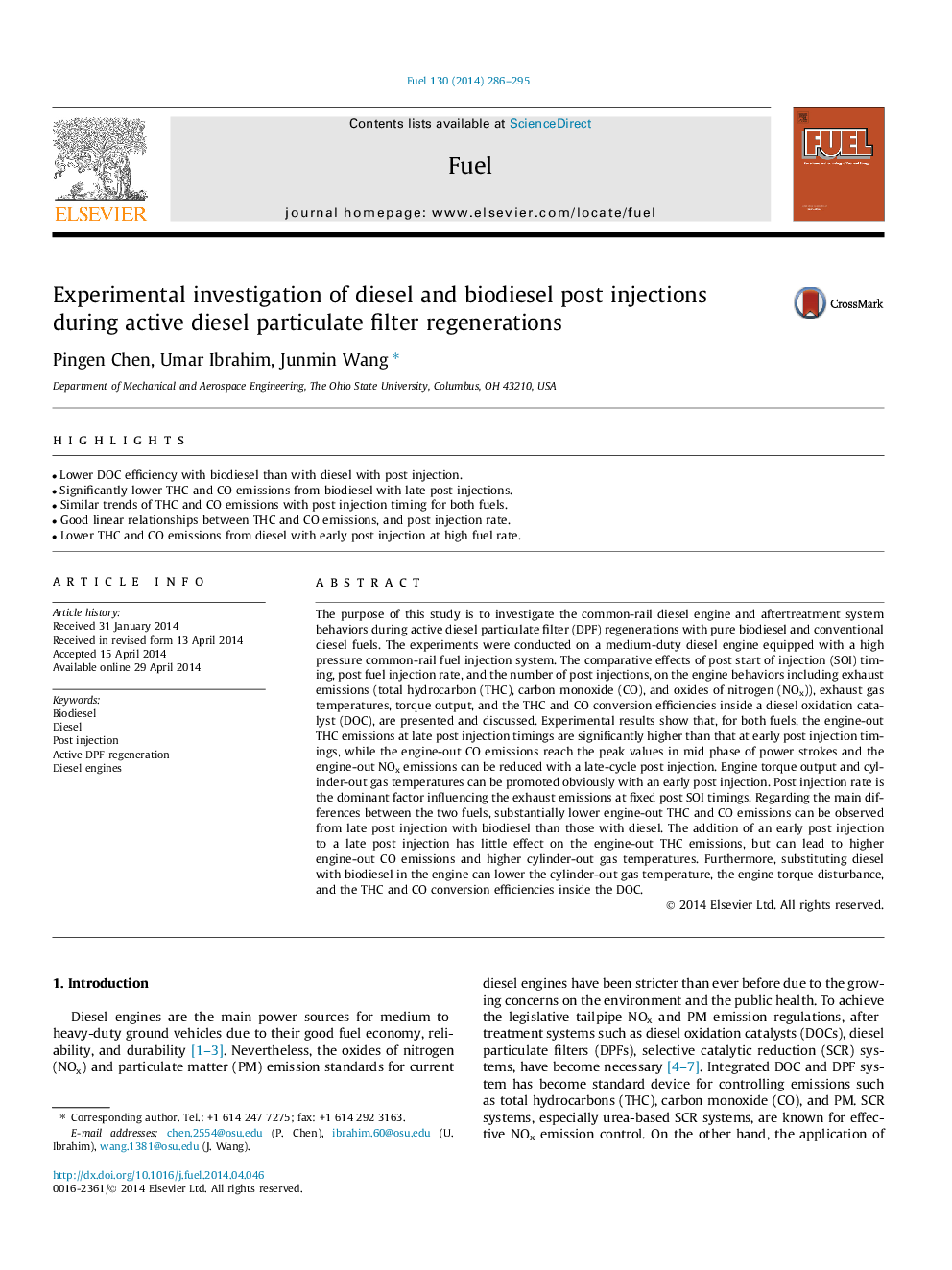| کد مقاله | کد نشریه | سال انتشار | مقاله انگلیسی | نسخه تمام متن |
|---|---|---|---|---|
| 6637479 | 461141 | 2014 | 10 صفحه PDF | دانلود رایگان |
عنوان انگلیسی مقاله ISI
Experimental investigation of diesel and biodiesel post injections during active diesel particulate filter regenerations
ترجمه فارسی عنوان
بررسی تجربی تزریقات دیزلی و بیودیزل در طی بازسازی فیلترهای فعال ذرات دیزلی
دانلود مقاله + سفارش ترجمه
دانلود مقاله ISI انگلیسی
رایگان برای ایرانیان
کلمات کلیدی
موضوعات مرتبط
مهندسی و علوم پایه
مهندسی شیمی
مهندسی شیمی (عمومی)
چکیده انگلیسی
The purpose of this study is to investigate the common-rail diesel engine and aftertreatment system behaviors during active diesel particulate filter (DPF) regenerations with pure biodiesel and conventional diesel fuels. The experiments were conducted on a medium-duty diesel engine equipped with a high pressure common-rail fuel injection system. The comparative effects of post start of injection (SOI) timing, post fuel injection rate, and the number of post injections, on the engine behaviors including exhaust emissions (total hydrocarbon (THC), carbon monoxide (CO), and oxides of nitrogen (NOx)), exhaust gas temperatures, torque output, and the THC and CO conversion efficiencies inside a diesel oxidation catalyst (DOC), are presented and discussed. Experimental results show that, for both fuels, the engine-out THC emissions at late post injection timings are significantly higher than that at early post injection timings, while the engine-out CO emissions reach the peak values in mid phase of power strokes and the engine-out NOx emissions can be reduced with a late-cycle post injection. Engine torque output and cylinder-out gas temperatures can be promoted obviously with an early post injection. Post injection rate is the dominant factor influencing the exhaust emissions at fixed post SOI timings. Regarding the main differences between the two fuels, substantially lower engine-out THC and CO emissions can be observed from late post injection with biodiesel than those with diesel. The addition of an early post injection to a late post injection has little effect on the engine-out THC emissions, but can lead to higher engine-out CO emissions and higher cylinder-out gas temperatures. Furthermore, substituting diesel with biodiesel in the engine can lower the cylinder-out gas temperature, the engine torque disturbance, and the THC and CO conversion efficiencies inside the DOC.
ناشر
Database: Elsevier - ScienceDirect (ساینس دایرکت)
Journal: Fuel - Volume 130, 15 August 2014, Pages 286-295
Journal: Fuel - Volume 130, 15 August 2014, Pages 286-295
نویسندگان
Pingen Chen, Umar Ibrahim, Junmin Wang,
